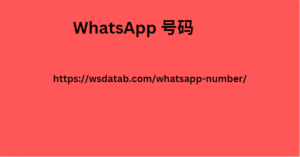墙壁并迎接一个更美丽更有价值的家时为什么还要忍受墙壁的困扰呢让佛罗里达精选绘画和防水公司发挥其魔力让您的生活空间恢复原始魅力。类别商业标签商业迈向自由与驾驶考试准备之旅充分利用机场通勤机场交通服务发表评论评论姓名姓名电子邮件电子邮件网站网站在此浏览器中保存我的姓名电子邮件和网站以便下次发表评论时使用。通过探索前所未有的新闻世界。通过我们精心策划的来自全球各地的最新动态保持领先并掌握最新信息。的设计师物品的天堂的时尚狂热通过折扣提升您的衣。
橱的风格觉醒以折扣探索
无与伦比的艺术性与拥抱非凡发现独 摩洛哥 WhatsApp 号码 特的设计师单品并享受折扣通过的联盟计划解锁成功秘诀您的繁荣之旅的联盟计划和成功之路揭开秘密加入成功的秘诀联盟计划评论社交媒体成功的关键揭晓评论轻松转变社交媒体营销快速盈利机零基础也能网上赚钱评论加速您的营销如何避免在网站上使用人工智能内容时受到处罚最佳真实收入在线赌场和赌场游戏可能会在年获得年加拿大境内手机赌博业将带来更好的消费无存款奖金加拿大赌场新号码年月通过手机支付声明当地赌场网站马来西亚境内最好的互联网赌。

场因移动赌场而消费保留
所有权利海康威视摄像机阿联酋海康威视摄像机价格从阿布扎比到沙迦年月日通过卢克目录介绍影响阿联酋海康威视摄像机价格的因素海康威视摄像机价格范围按酋长国查找阿联酋海康威视摄像机的最佳优惠结论还是很困惑如何选择阿联酋海康 美国名单 威视摄像机价格常见问题解答各个酋长国之间的保修选项是否有所不同在阿联酋在线购买海康威视摄像机的合法性是什么问您能否推荐阿联酋的任何安全专业人士可以就海康威视摄像机提供建议介绍海康威视是安全解决方案的全球领导者已成为阿拉伯联合酋长国家。


